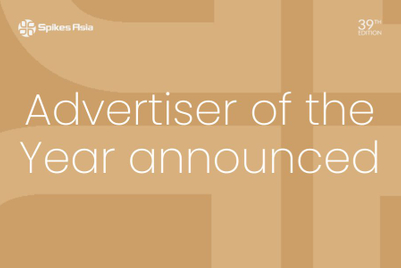
It was acceptable a while back to wistfully talk about the glory days of advertising, when creativity was respected, money was plentiful and time was given.
Then this became uncool to say, and we all had to 'run towards the future', 'embrace change' and claim that this was 'the most exciting time to be in the business'.
But, especially if you are of a creative bent, is it really?
What happens if the wistful Luddites are actually absolutely right? After all, the commodification of creativity in our industry seems fairly clear.
I suspect they are.
Capitalism is not a nostalgic, sentimental thing. It does not give two hoots about us leading fulfilling careers or 'adding something to society'. It is a brute force that simply uses and values that which is most advantageous to it at any moment in time.
In the '70s and '80s in developed markets, with supermarket shelves filled with good quality, but largely parity products, and a very limited number of advertising channels in which to promote them, advertising creativity was your potential big lever to get ahead of your competitors.
Get it right and you had a genuine 'unfair advantage'. And capitalism loves unfair advantages. It is also willing to pay handsomely for them. Long lunches abounded.
But then in the late '90s the channel explosion started. Very rapidly advertising creativity just wasn't as important as it once was. It was demoted.
The big lever became an ability to reach audiences digitally and manage rapidly multiplying media channels. And now, pretty clearly, it is the big new-media companies that own the beach at Cannes. From capitalism's point of view quite rightly—they are worth paying for.
Us, rather less so.
But will this change? Of course. Capitalism is no more sentimental about channel than it is about creativity. It's just about what's most useful. If that moves on, so will it.
And interestingly, it feels like we are at the beginning of another inflection point. Digital media is consolidating. Facebook bought Instagram, WhatsApp and Oculus Rift. Microsoft has snapped up Skype and LinkedIn. In addition to owning YouTube, Google is a likely contender to swallow Twitter.
And the big players' dominance is becoming more and more pronounced.
Likewise as they realise consumers aren't that keen on 'engaging with brands' as opposed to with their friends (surprise, surprise!) they are selling themselves more and more on plain old reach and interruption. Which, for the older ones amongst us, sounds rather familiar.
So there is every chance that we will be heading back to fewer, bigger, more established channels where we can practice our craft. And with that greater stability and focus, commercial creativity is very likely to come back as capitalism's number one lever.
And, who knows, we may even get to go back out to lunch.
Charles Wigley is chairman of BBH Asia Pacific


.jpg&h=334&w=500&q=100&v=20250320&c=1)


.png&h=334&w=500&q=100&v=20250320&c=1)





.png&h=334&w=500&q=100&v=20250320&c=1)

.jpg&h=268&w=401&q=100&v=20250320&c=1)


.png&h=268&w=401&q=100&v=20250320&c=1)


